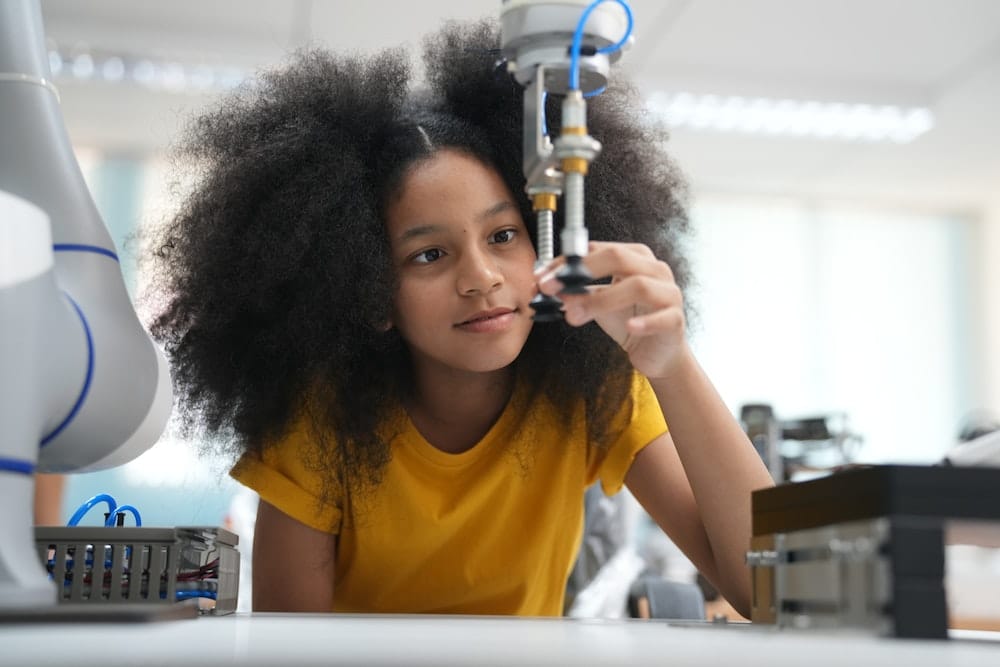In the fast-paced world of today, smart technology is becoming increasingly ingrained in our daily lives. From smartphones to smart cars, and now, smart homes, this evolution shows no signs of slowing down. UK home appliance manufacturers can’t afford to lag behind in this digital race. They must integrate smart technology into their products to stay competitive. But how exactly can they make that leap? This article will explore potential pathways, revealing how these manufacturers can successfully navigate the world of smart technology.
Embracing Internet of Things (IoT)
Internet of Things (IoT) is a revolutionary concept that involves connecting everyday objects to the internet, allowing them to send and receive data. This technology can turn ordinary appliances into smart devices, enabling them to function more efficiently and offer improved user experiences.
A lire en complément : How to Develop a Comprehensive Cybersecurity Strategy for UK Online Pharmacies?
UK home appliance manufacturers can take advantage of this technology to improve their products’ functionality and relevance in the modern market. For instance, imagine a washing machine that can automatically order detergent from an online store when it’s running low, or a refrigerator that can track its contents and suggest recipes based on what’s available.
These manufacturers can also leverage IoT to gather valuable user data, which can be analysed to gain insights into customer behaviour and preferences. This information can then be used to design products that better meet consumers’ needs, thereby giving these manufacturers a competitive edge.
A lire aussi : What Are the Best Organic Farming Practices for UK Smallholders to Increase Biodiversity?
Incorporating Artificial Intelligence (AI)
Artificial Intelligence (AI) is another groundbreaking technology that UK home appliance manufacturers can use to enhance their products. AI involves the use of algorithms and computing power to create systems that can learn from experience, adjust to new inputs, and perform tasks that typically require human intelligence.
By integrating AI into their appliances, these manufacturers can make their products more user-friendly and efficient. For instance, they can develop smart ovens that can recognize various types of food and adjust their cooking times and temperatures accordingly. They can also create robotic vacuum cleaners that can learn the layout of a home and devise the most efficient cleaning route.
Moreover, AI can facilitate predictive maintenance, which involves using data analytics to predict when an appliance might fail or require servicing, and addressing the issue proactively. This can increase the appliance’s lifespan, improve its performance, and enhance customer satisfaction.
Adopting Voice Recognition Technology
Voice recognition technology is a feature of smart technology that allows devices to understand and respond to human speech. This technology can greatly enhance the convenience and accessibility of home appliances, making them more appealing to consumers.
For example, UK home appliance manufacturers can offer products that can be controlled through voice commands. Imagine being able to tell your coffee maker to start brewing a fresh pot, or asking your air conditioner to adjust the temperature without lifting a finger. Such functionality can greatly improve consumers’ experiences and make these appliances more aligned with the modern, digital lifestyle.
Furthermore, this technology can also improve appliance safety. For instance, it can be used to develop stoves that can be turned off through voice commands, reducing the risk of fire incidents.
Building Smart Home Ecosystems
Another way for UK home appliance manufacturers to stay competitive is by building smart home ecosystems. This involves creating a network of interconnected appliances that can communicate with each other and work together to optimise a home’s operations.
These manufacturers can offer consumers comprehensive packages of smart appliances that can be controlled through a single app or interface. For instance, they can develop a smart home system that includes a smart thermostat, smart lighting, smart security cameras, and so on.
This approach not only provides consumers with enhanced convenience and control over their homes, but also creates strong customer loyalty. Once a consumer invests in a particular brand’s ecosystem, they’re likely to stick with that brand for future purchases.
Prioritising Cybersecurity
While smart technology offers numerous benefits, it also comes with potential risks, particularly in terms of cybersecurity. As appliances become more connected to the internet, they also become more vulnerable to cyber threats.
Therefore, UK home appliance manufacturers must prioritise cybersecurity when integrating smart technology into their products. They should invest in robust encryption and secure communication protocols to protect their appliances from cyber attacks. They should also provide regular software updates to address potential vulnerabilities and ensure their appliances’ continued security.
By taking these steps, they can not only protect their customers’ privacy and safety but also build their trust and reputation in the market. This can be a significant competitive advantage in the digital age, where consumers are becoming increasingly conscious about their digital security.
In conclusion, by adopting IoT, incorporating AI, using voice recognition technology, building smart home ecosystems, and prioritising cybersecurity, UK home appliance manufacturers can successfully integrate smart technology into their products and stay competitive in the modern market. This transformation may be challenging, but it is necessary for these manufacturers to continue thriving in the digital age.
Offering Personalised Experiences
Personalisation is becoming a prominent trend in today’s digital era. Consumers increasingly desire appliances that cater to their unique needs and preferences. Thus, UK home appliance manufacturers should consider leveraging smart technology to offer personalised experiences.
One way to achieve this is by integrating machine learning technologies into appliances. Machine learning algorithms can learn from users’ behaviours and habits and make predictions or recommendations based on these patterns. For instance, a smart thermostat can learn a user’s preferred temperature settings at different times of the day and automatically adjust the temperature accordingly.
Additionally, manufacturers can use data analytics to understand their customers better and offer personalised services. With the help of user data, manufacturers can identify their customers’ needs and preferences and develop products or features specifically catering to those needs. For example, based on the data collected from a smart oven, manufacturers can recommend personalised recipes or cooking tips to the user.
By offering personalised experiences, UK home appliance manufacturers can enhance customer satisfaction, foster customer loyalty, and ultimately, increase their market competitiveness.
Enhancing Energy Efficiency
Energy efficiency is another critical factor that consumers consider when purchasing home appliances. As society becomes more environmentally conscious, there is a growing demand for appliances that consume less energy and have a smaller carbon footprint. By integrating smart technology, UK home appliance manufacturers can enhance the energy efficiency of their products and meet this rising demand.
Smart appliances can optimise energy usage by learning user habits and adjusting their operations accordingly. For example, a smart refrigerator can monitor its usage patterns and identify times when it is least used. It can then enter a low-power mode during these periods, thereby conserving energy.
Moreover, these appliances can provide users with real-time energy consumption data, helping them understand their energy usage better and make informed decisions to reduce it.
Boosting energy efficiency not only meets consumer demands and helps manufacturers stay competitive but also contributes to global sustainability efforts. It reflects positively on the manufacturers’ brand image, potentially attracting more environmentally-conscious consumers.
Conclusion
In this digital age, UK home appliance manufacturers need to embrace smart technology to remain competitive. By leveraging IoT, incorporating AI, adopting voice recognition technology, building smart home ecosystems, prioritising cybersecurity, offering personalised experiences, and enhancing energy efficiency, they can significantly improve their products’ functionality, appeal, and relevance in the modern market.
Although integrating smart technology involves considerable challenges, the potential benefits make it a worthwhile endeavour. It allows manufacturers to keep up with evolving consumer demands, differentiate their products from the competition, and maintain a strong foothold in the increasingly digital and connected world.
The journey towards smart technology integration may be complex, but it is an essential step for UK home appliance manufacturers to thrive in this digital era. By embracing these technologies, they can pave the way for a future where home appliances are not just smart, but also secure, personalised, energy-efficient, and seamlessly integrated into the fabric of everyday life.











